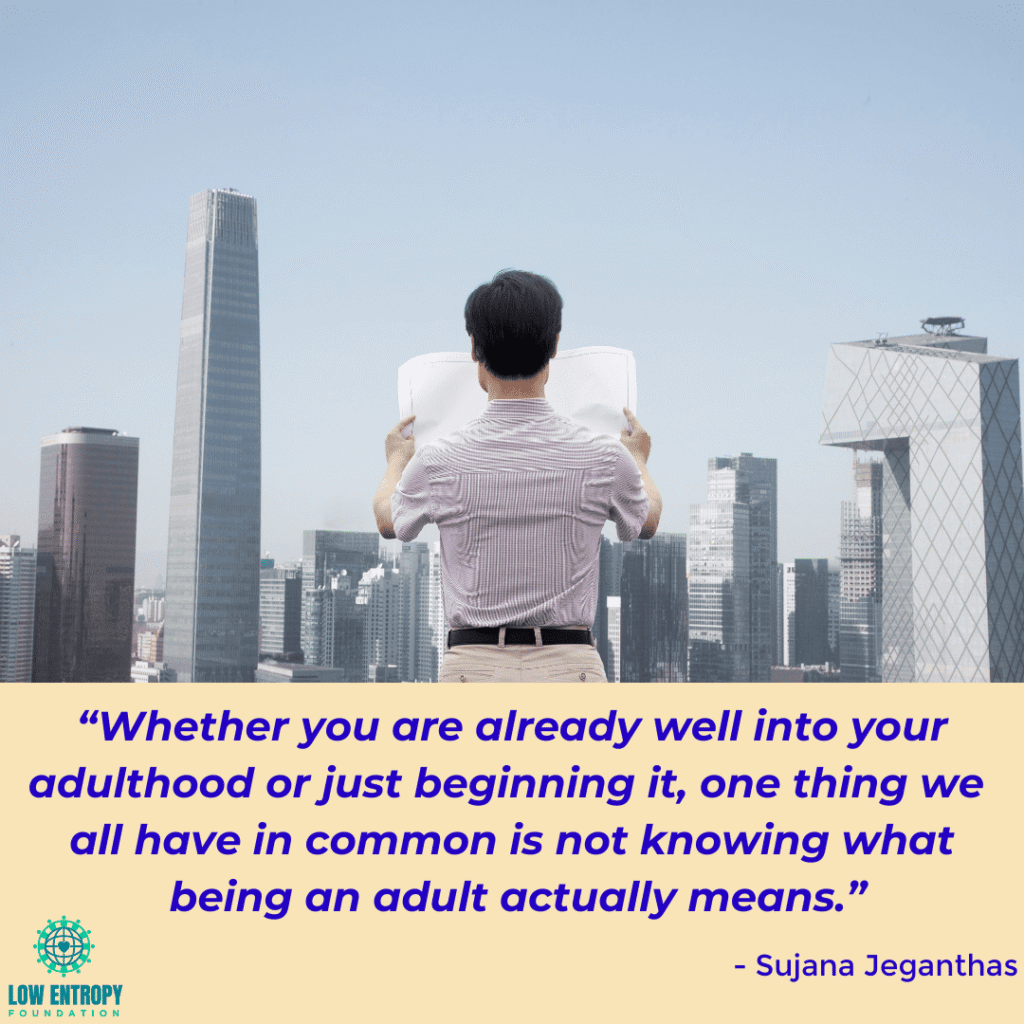Looking Back to Create a Positive Future
Christy Braybrook (she/her/hers], Low Entropy Volunteer Writer I have made countless mistakes over the course of my lifetime in varying degrees of severity. Afterwards, I say that timeless phrase “I’ll never do that again” or “Please ___, allow me to get out of this situation and I will never ___ again.” Then I would […]
The Small Things
Raghavi (she/her/hers), Low Entropy Volunteer Writer New Year’s is a time of reflection for many. A time to look back on the past year and to look ahead to the future. I used to write out a list of lofty goals every New Year, and then promptly forget about them by the end of […]
Five Things You Wish Adults Had Told You Before You Became One

Low Entropy Volunteer Writer Sujana Jeganthas drops some knowledge on how to adult, and it has nothing to do with pensions or utilities bills. Whether you are already well into your adulthood or just beginning it, one thing we all have in common is not knowing what being an adult actually means. As teenagers, […]
The Fearless Art of Changing Your Life
They are common notions, that life-changing experiences occur rarely and require drastic measures. Not so, posits Low Entropy Volunteer Writer Daniel Wilkens. Daniel proposes that, at any time, we are surrounded by a myriad of life-altering, low-barrier opportunities, just waiting to make us into the best versions of ourselves. Sometimes change is forced upon […]
